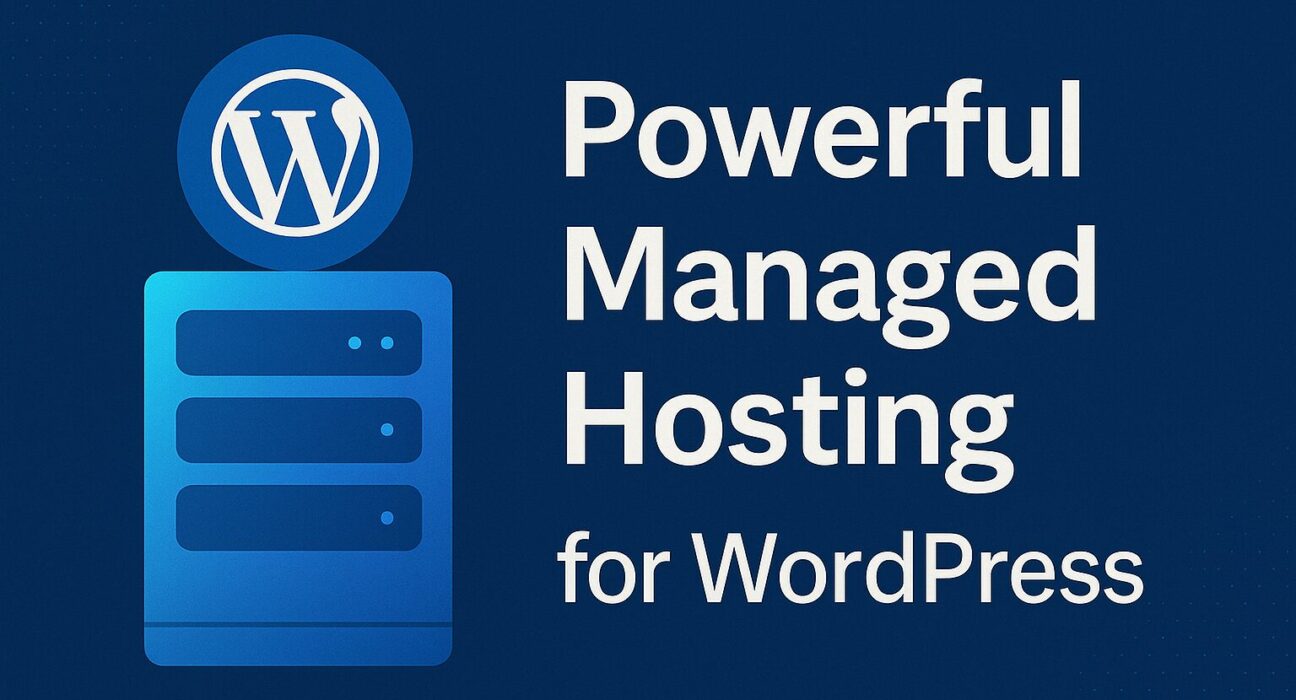Index
- What is Managed WordPress Hosting?
- Benefits of Managed Hosting for WordPress
- Key Features to Look For
- Top Managed WordPress Hosting Providers
- Who Should Use Managed Hosting?
- How to Migrate to a Managed WordPress Host
- Frequently Asked Questions (25)
- Conclusion
What is Managed WordPress Hosting?
Managed WordPress hosting is a specialized hosting solution designed exclusively for WordPress websites. Unlike traditional shared hosting, it offers a fully optimized environment managed by WordPress experts. This includes performance tuning, automatic updates, backups, malware scans, and technical support tailored for WordPress.
Benefits of Managed Hosting for WordPress
- Performance Optimization: Servers are configured specifically for WordPress, ensuring faster loading times and better caching mechanisms.
- Automatic Updates: Core WordPress updates and security patches are applied automatically.
- Expert Support: Get help from technicians who specialize in WordPress troubleshooting and performance.
- Enhanced Security: Real-time malware scanning, DDoS protection, and SSL integration.
- Daily Backups: Most managed hosting providers offer automated daily backups with easy restore options.
Key Features to Look For
- Built-in Caching
- Staging Environments
- One-click WordPress installs
- Automatic WordPress Core and Plugin Updates
- Developer Tools (SSH, Git, WP-CLI)
- 24/7 Technical Support
- CDN Integration
Top Managed WordPress Hosting Providers
Hostinger
Known for affordability and performance, Hostinger offers LiteSpeed-powered WordPress hosting with free SSL, malware protection, and an intuitive control panel. Hostinger is one of the best-value providers for startups and SMEs.
Bluehost
Bluehost is officially recommended by WordPress.org. It provides automated WordPress installation, free domain name, staging, and 24/7 support.
SiteGround
SiteGround excels in speed and security. It offers Google Cloud infrastructure, AI-driven anti-bot systems, and SuperCacher for enhanced performance.
Kinsta
Kinsta offers premium managed WordPress hosting built on Google Cloud with automatic scaling, performance monitoring, and global CDN.
WP Engine
As a pioneer in managed WordPress hosting, WP Engine is ideal for high-traffic sites and enterprises. Their platform offers advanced analytics, one-click staging, and robust security.
Who Should Use Managed Hosting?
Managed WordPress hosting is perfect for:
- Bloggers who want to focus on content creation
- eCommerce stores built on WooCommerce
- Agencies managing multiple WordPress websites
- Businesses requiring secure and fast-loading websites
- Developers who want dev-friendly environments
How to Migrate to a Managed WordPress Host
Migrating to a managed WordPress host is often free and painless:
- Sign up with a managed hosting provider like Hostinger or Bluehost.
- Use their free migration tool or ask support to migrate your site.
- Verify DNS settings and switch nameservers.
- Test the site thoroughly before going live.
Frequently Asked Questions (FAQs)
- 1. What is managed WordPress hosting?
- Managed WordPress hosting is a specialized service optimized specifically for WordPress websites, offering features like automatic updates, expert support, and enhanced performance.
- 2. Why choose managed hosting over shared hosting for WordPress?
- Managed hosting provides better speed, security, and dedicated support compared to shared hosting.
- 3. Is managed WordPress hosting suitable for beginners?
- Yes, it’s ideal for beginners as the hosting provider handles all technical tasks.
- 4. Which is the best managed WordPress hosting provider in 2025?
- Top providers include Hostinger, Bluehost, SiteGround, and Kinsta.
- 5. Does managed hosting include automatic backups?
- Yes, most managed WordPress hosts provide daily automatic backups with one-click restore options.
- 6. Can I use plugins with managed WordPress hosting?
- Yes, you can use plugins, although some hosts may restrict resource-heavy or unsafe plugins.
- 7. How secure is managed WordPress hosting?
- It includes malware scanning, firewall protection, DDoS mitigation, and automatic updates to keep your site secure.
- 8. Will my website load faster on managed hosting?
- Yes, managed hosts use server-level caching, CDN integration, and SSD storage for faster performance.
- 9. Can I migrate my existing site to a managed WordPress host?
- Most managed WordPress hosting providers offer free or assisted website migration services.
- 10. What’s the average cost of managed WordPress hosting?
- Pricing typically starts from $5 to $30 per month depending on the features and provider.
- 11. Is a CDN included with managed WordPress hosting?
- Many providers include free CDN integration to enhance global load times and performance.
- 12. Can I host multiple WordPress sites on a managed plan?
- Yes, depending on your plan. Some plans allow hosting multiple sites while others are limited to one.
- 13. What happens if my site gets hacked?
- Most managed hosts offer free malware removal and real-time threat detection services.
- 14. Do I need to manually update WordPress plugins and themes?
- Most managed hosts offer automatic plugin and theme updates with rollback options.
- 15. What level of support is offered?
- 24/7 expert WordPress support via chat, email, or phone is typically included.
- 16. Is email hosting included in managed WordPress plans?
- Some providers include it, but others require you to use third-party services like Google Workspace.
- 17. Are staging environments available?
- Yes, many providers offer one-click staging environments to test changes before deploying live.
- 18. Do managed hosts limit website traffic?
- Some plans may have traffic limits or fair usage policies—check with your provider for details.
- 19. Can I access my files and database?
- Yes, you’ll have access to your file manager and database via cPanel or custom dashboards.
- 20. Is managed hosting worth the extra cost?
- Absolutely. It saves time, reduces technical stress, and ensures your WordPress site runs efficiently and securely.




